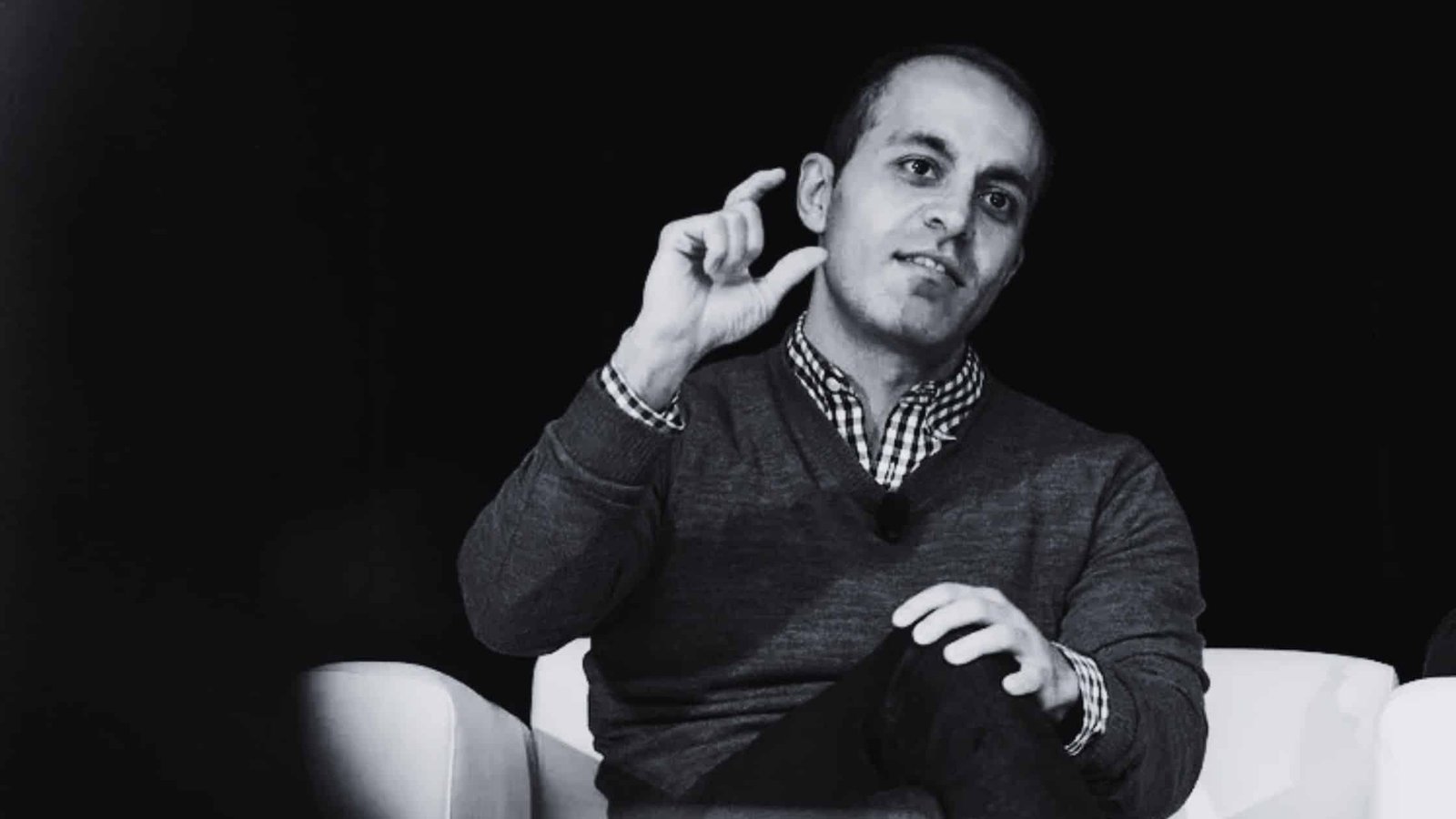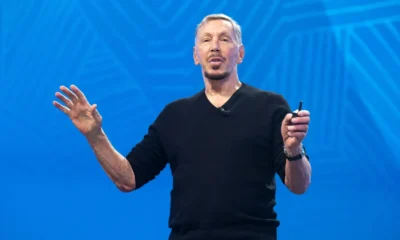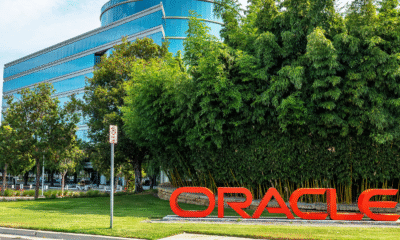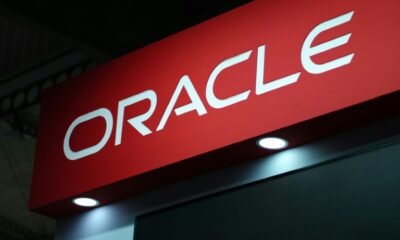Jobs & Careers
Oracle Lands $300 Billion OpenAI Cloud Deal, One of the Largest in History

OpenAI has struck one of the largest cloud computing deals in history with Oracle, agreeing to a contract worth about $300 billion over five years starting in 2027.
According to the Wall Street Journal, the agreement will see Oracle supply OpenAI with roughly 4.5 gigawatts of computing capacity, an amount of power comparable to two Hoover Dams or enough to run around four million homes.
The scale of the deal is staggering compared to OpenAI’s current business. The AI company generates around $10 billion in annual revenue, making the long-term commitment a major financial bet on the future of its technology.
For Oracle, the agreement represents a transformative moment. Shares of the company surged by nearly 43% following the announcement, the biggest single-day gain since 1992. The stock jump added more than $100 billion to Chairman Larry Ellison’s wealth, briefly pushing him past Elon Musk and Jeff Bezos in global rich lists.
Still, both sides face significant risks. For OpenAI, the multi-hundred-billion-dollar commitment locks the company into massive infrastructure spending far outpacing its current revenues.
For Oracle, delivering on such a colossal supply of cloud and AI infrastructure may require heavy investment and debt financing, while tying its fortunes closely to one customer.
The deal also carries major strategic implications. OpenAI has long relied on Microsoft’s Azure cloud, but working with Oracle shows it is diversifying its computing needs.
The partnership also ties into “Stargate,” a massive AI infrastructure project backed by Oracle, SoftBank and others, aimed at powering the next generation of large-scale AI systems.
Ultimately, the agreement highlights how the race to lead in AI is now driven by huge bets on infrastructure. For Oracle, the win boosts its position against Microsoft, Amazon and Google in the cloud market.
The post Oracle Lands $300 Billion OpenAI Cloud Deal, One of the Largest in History appeared first on Analytics India Magazine.
Jobs & Careers
DeepMind’s Demis Hassabis says calling AI PhD Intelligences is ‘Nonsense’

Demis Hassabis, CEO of Google DeepMind, dismissed claims that today’s AI systems are PhD intelligences, calling the label nonsense and arguing that current models lack the consistency and reasoning needed for true general intelligence.
“They’re not PhD intelligences,” Hassabis said in a recent All-in-podcast interview. “They have some capabilities that are PhD level, but they’re not in general capable, and that’s exactly what general intelligence should be—performing across the board at the PhD level.”
Hassabis’ statements come after OpenAI dubbed its latest AI model, GPT-5, as PhD-level.
Hassabis explained that while advanced language models can demonstrate impressive skills, they can also fail at simple problems. “As we all know, interacting with today’s chatbots, if you pose the question in a certain way, they can make simple mistakes with even high school maths and simple counting. That shouldn’t be possible for a true AGI system,” he said.
The DeepMind chief said artificial general intelligence (AGI) is still five to ten years away, pointing to missing capabilities such as continual learning and intuitive reasoning. “We are lacking consistency,” he said. “One of the things that separates a great scientist from a good scientist is creativity—the ability to spot patterns across subject areas. One day AI may be able to do this, but it doesn’t yet have the reasoning capabilities needed for such breakthroughs.”
On industry benchmarks, Hassabis pushed back against the idea of performance stagnation. “We’re not seeing that internally. We’re still seeing a huge rate of progress,” he said, countering reports that suggested convergence or slowing improvement among large language models.
Hassabis said that while scaling may deliver advances, one or two breakthroughs will still be required in the coming years.
Jobs & Careers
Databricks Invests in Naveen Rao’s New AI Hardware Startup

Ali Ghodsi, CEO and Co-Founder of Databricks, announced in a LinkedIn post on September 13 that the company is investing in a new AI hardware startup launched by Naveen Rao, former vice president of AI at Databricks.
Details of the company’s name, funding size, and product roadmap have not been disclosed yet.
“Over six months ago, Naveen Rao and I started discussing the potential to have a massive impact on the world of AI,” Ghodsi wrote. “Today, I’m excited to share that Naveen Rao is starting a company that I think has the potential to revolutionise the AI hardware space in fundamental ways.”
Rao, who previously founded Nervana (acquired by Intel) and MosaicML (acquired by Databricks), said the new project will focus on energy-efficient computing for AI.
“The new project is about rethinking the foundations of compute with respect to AI to build a new machine that is vastly more power efficient. Brain Scale Efficiency!” he said.
Ghodsi highlighted Rao’s track record in entrepreneurship and his contributions at Databricks. “If anyone can pull this off, it’s Naveen,” he noted, adding that Rao will continue advising Databricks while leading the new venture.
Databricks has closed a $10 billion Series J funding round, raising its valuation to $62 billion. The company’s revenue is approaching a $3 billion annual run rate, with forecasts indicating it could turn free cash flow positive by late 2024.
Growth is being fueled by strong adoption of the Databricks Data Intelligence Platform, which integrates generative AI accelerators. The platform is seeing rapid uptake across enterprises, positioning Databricks as one of the leading players in the enterprise AI stack.
Rao described the move as an example of Databricks supporting innovation in the AI ecosystem. “I’m very proud of all the work we did at Mosaic and Databricks and love to see how Databricks will be driving the frontier of AI in the enterprise,” he said.
Jobs & Careers
OpenAI Announces Grove, a Cohort for ‘Pre-Idea Individuals’ to Build in AI

OpenAI announced a new program called Grove on September 12, which is aimed at assisting technical talent at the very start of their journey in building startups and companies.
The ChatGPT maker says that it isn’t a traditional startup accelerator program, and offers ‘pre-idea’ individuals access to a dense talent network, which includes OpenAI’s researchers, and other resources to build their ideas in the AI space.
The program will begin with five weeks of content hosted in OpenAI’s headquarters in San Francisco, United States. This includes in-person workshops, weekly office hours, and mentorship with OpenAI’s leaders. The first Grove cohort will consist of approximately 15 participants, and OpenAI is recommending individuals from all domains and disciplines across various experience levels.
“In addition to technical support and community, participants will also have the opportunity to get hands-on with new OpenAI tools and models before general availability,” said OpenAI in the blog post.
Once the program is completed, the company says that participants will be able to explore opportunities to explore capital or pursue other avenues, internal or external to OpenAI. Interested applicants can fill out the form on OpenAI’s website by September 24.
Grove is in addition to other programs such as ‘Pioneers’ and ‘OpenAI for Startups’, which were announced earlier this year.
The OpenAI Pioneers program is an initiative that deploys AI to real-world use cases by assisting companies that intend to do so. OpenAI’s research teams will collaborate with these companies to solve the problems and expand their capabilities.
On the other hand, OpenAI for startups is an initiative designed to provide founders with AI tools, resources, and community support to scale their AI products. For instance, the program includes ‘live build hours’ where engineers from OpenAI provide hands-on demos, webinars, access to code repositories, ask me anything (AMA) sessions, case studies, and more.
It also includes real-life meetups, events, and more to assist founders in their journey. If startups are backed by venture capital firms that are partners of OpenAI (Thrive Capital, Sequoia, a16z, Kleiner Perkins, and Conviction Partners), they are eligible for free API credits, rate limit upgrades, and interactions with the company’s team members, alongside invites to exclusive events.
-

 Business2 weeks ago
Business2 weeks agoThe Guardian view on Trump and the Fed: independence is no substitute for accountability | Editorial
-
Tools & Platforms1 month ago
Building Trust in Military AI Starts with Opening the Black Box – War on the Rocks
-

 Ethics & Policy2 months ago
Ethics & Policy2 months agoSDAIA Supports Saudi Arabia’s Leadership in Shaping Global AI Ethics, Policy, and Research – وكالة الأنباء السعودية
-

 Events & Conferences4 months ago
Events & Conferences4 months agoJourney to 1000 models: Scaling Instagram’s recommendation system
-

 Jobs & Careers3 months ago
Jobs & Careers3 months agoMumbai-based Perplexity Alternative Has 60k+ Users Without Funding
-

 Podcasts & Talks2 months ago
Podcasts & Talks2 months agoHappy 4th of July! 🎆 Made with Veo 3 in Gemini
-

 Education3 months ago
Education3 months agoVEX Robotics launches AI-powered classroom robotics system
-

 Education2 months ago
Education2 months agoMacron says UK and France have duty to tackle illegal migration ‘with humanity, solidarity and firmness’ – UK politics live | Politics
-

 Funding & Business3 months ago
Funding & Business3 months agoKayak and Expedia race to build AI travel agents that turn social posts into itineraries
-

 Podcasts & Talks2 months ago
Podcasts & Talks2 months agoOpenAI 🤝 @teamganassi



















